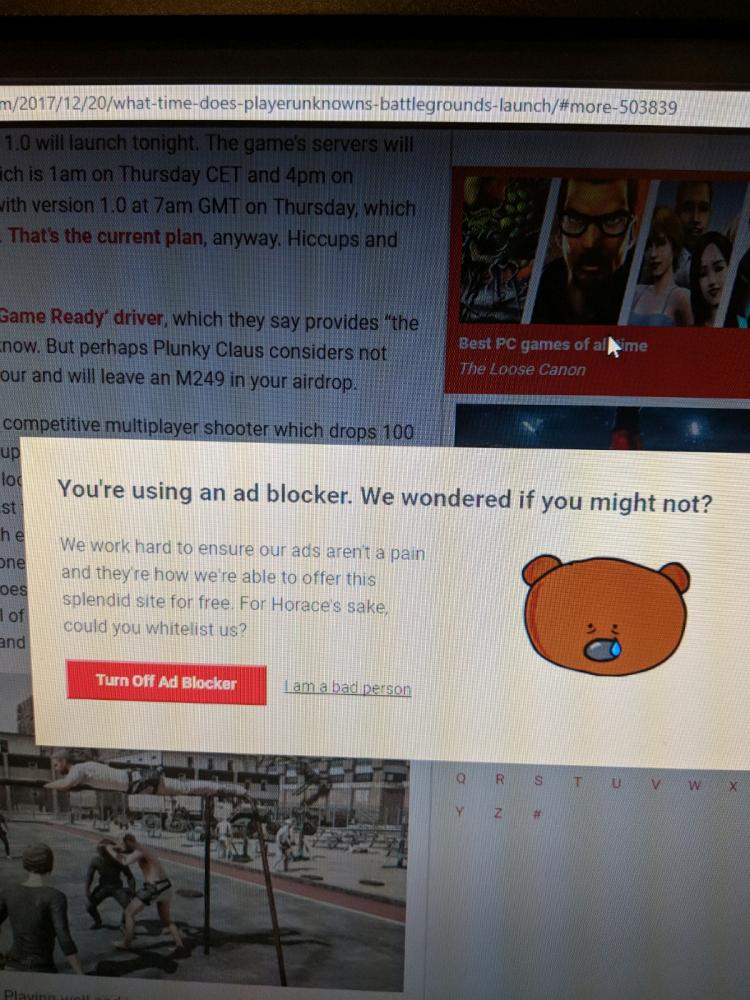Ranter
Join devRant
Do all the things like
++ or -- rants, post your own rants, comment on others' rants and build your customized dev avatar
Sign Up
Pipeless API

From the creators of devRant, Pipeless lets you power real-time personalized recommendations and activity feeds using a simple API
Learn More
Comments
-
Lexter11345y@010001111 Making website functional with lowest possibilites of end user. Then enhance the user experience with for example javascript.
-
If you mean to make the website work first, publish it and then add accessibility, contrast checks etc. then the answer is a yes. Most companies won't have the time to do that in development, but a wise company will take it's time to do it. Because doing it afterwards, you most likely need more time to do it and check everything again than doing it properly in the first place.
-
Lexter11345y@010001111 Actualy no. What you said is just basic version of the website. Readability, accessibility and so. Progressive enhancement mean adding + value to the website with technologies what are does not required to run website. Javascript is example. For example: Serve static content via server rendered templates and then on top of that add ajax feature to load post so you don't have to worry about how and where JS can fail on deliver.
-
Not really, imo.
For rather complex (single page) apps it is just very complicated and time consuming as you need to store all app state in the URL, only use forms and links (no buttons) and need to setup server side rendering. So most sites don't do it, first render might work but after that it ends, either your browser has everything needed or it doesn't.
More "basic" brochure sites are often built with WordPress themes and/or page builders that completely ignore accessibility and enhancement and instead focus on fast & easy customization, so the end result (usually) looks good but is absolutely horrible in terms of accessibility and resilience. -
Lexter11345y@21stCenturyJoku I mean websites (eshops, company sites, blogs and many, many, many others), not an apps. Web apps nowdays are very special and are heavily dependent on javascript. For good reason. But websites i named are different stories.
@theuser It is realy old term. Learn it, it can make you better dev. Haha first time i heard of it was when i tried convince IE5 to render my stuff corectly and realized i fucked up my work anyway. Stone age. -
No, it's not a thing. Web devs are like kids in a candy store, use NPM to download 10 GB of JS trash from all over the internet written by whomever, then brag that 99% of that gets discarded after 2 hours of compilation so that they "only" shove 2 MB of crap down to the users.
But hey, at least they don't have to learn HTML because it's so much easier to use an onclick handler for a div plus rewriting the document URL than going for an anchor tag. -
100% Dead.
I had a hard time getting our devs to adopt that when it was a thing. Now there’s no use or need for it.
I think it’s generally accepted that everyone will have javascript enabled now -
Lexter11345y@TrevorTheRat You asuming most of the users have javascript enabled and it is true assumption. But you have not considered users who are not able to run javascript or various scenarios when javascript can fail. Again, we are talking about sites not apps.
-
 Root772335yI prefer as little JavaScript as possible. Especially when I am a visitor.
Root772335yI prefer as little JavaScript as possible. Especially when I am a visitor.
Why? I cannot trust the code to not spy on me. -
@Lexter I also have Noscript users in mind. I'm doing in markup and stylesheets what I can to avoid JS, especially for the main navigation.
Where JS is required, usually for additional content, I'm using the noscript tag so that Noscript users at least know what exactly doesn't work. I guess this will also raise the level of trust for them because they see that I did think of this configuration.
On top of that, I don't include any third party content, JS in particular. That's where websites tend to get brittle because downtime of some other website can have immediate impact.
Plus that most don't use secure hashing and will happily include any script content that matches the remote filename, also when the remote website has been hacked. They don't do it because then their website would also fail with regular remote script updates. -
Lexter11345y@uyouthe @Fast-Nop Respect guys. Actualy it is pretty common technique for so called "old fashion" coders. We just grew in this way.
Related Rants

 The honest website ever... 🙌🏻🙌🏻🙌🏻
The honest website ever... 🙌🏻🙌🏻🙌🏻 Reality
Reality This is by far the best please turn off your Adblock I have ever seen. I actually paused my ad blocker 😂
This is by far the best please turn off your Adblock I have ever seen. I actually paused my ad blocker 😂
Hm, is **website** progressive enhancement still a thing?
Please be welcome into slaughter discussion. I just read some articles today and i'm realy curious what your thoughts are.
question
progressive enhancements
website